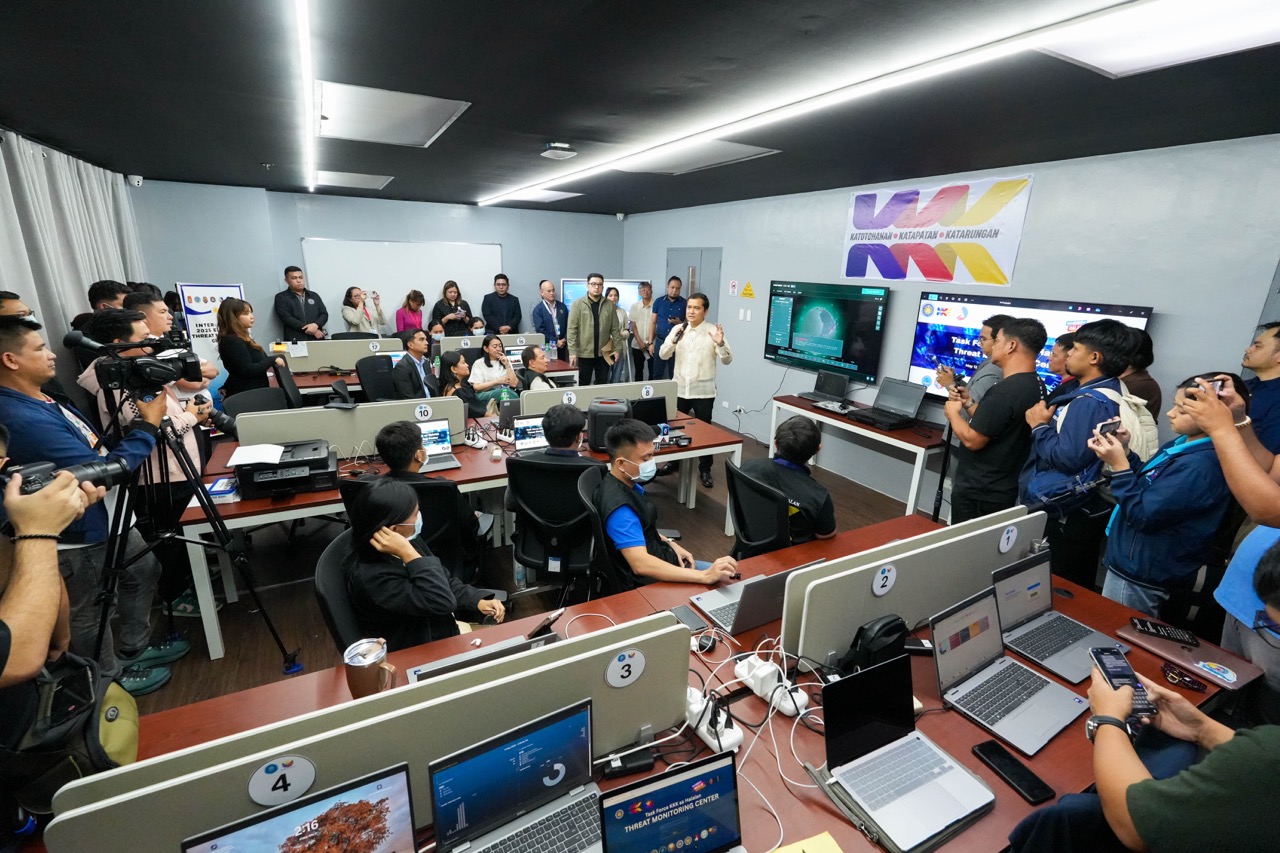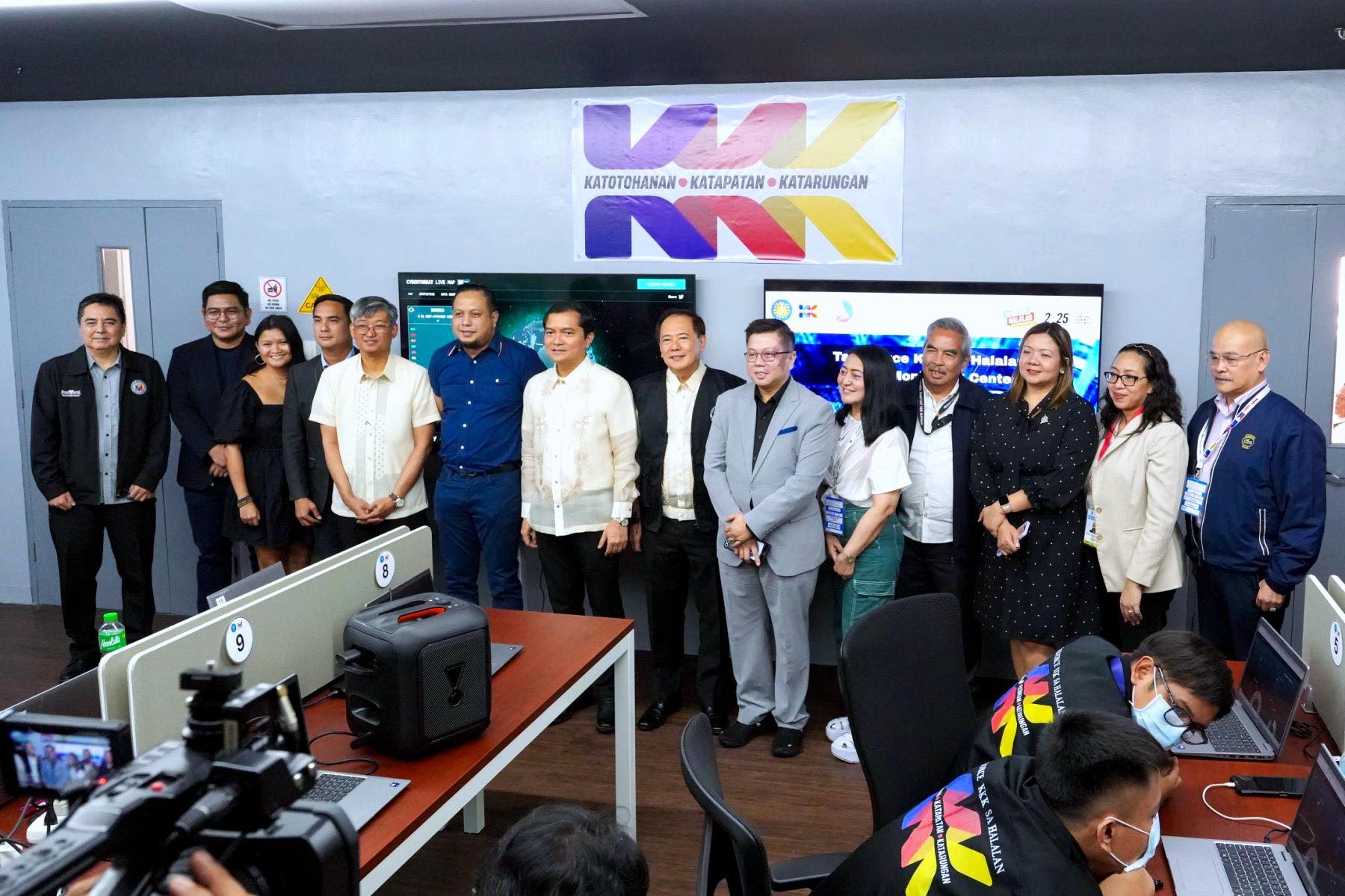
By Raymond Carl Dela Cruz | Philippine News Agency
The inter-agency “Task Force KKK (Katotohanan, Katapatan, Katarungan) sa Halalan” launched on Friday its new threat monitoring center that seeks to combat online disinformation and other election violations.
During the launching ceremony at the Cybercrime Investigation and Coordinating Center (CICC) office in Diliman, Quezon City, Presidential Communications Office (PCO) Secretary Jay Ruiz said the facility seeks to protect the integrity of the elections.
“Elections are the bedrock of democracy. President Ferdinand R. Marcos Jr. has issued a directive to make this election clean and fair. It aims to safeguard the integrity of the 2025 national and local elections,” Ruiz said.
He said there are reports of foreign state-sponsored groups that are attempting to influence the country’s elections.
“Lalo tayong mag-ingat dahil eleksiyon po ito. Ang pinoprotektahan natin dito ay boto ng bawat Pilipino. Magkaisa po tayo, labanan natin ang fake news,” Ruiz said.
Analysts from various government agencies are housed within the facility and are tasked with gathering reports of disinformation or “fake news,” malicious artificial intelligence (AI)-generated content, and other election violations under Commission on Elections (Comelec) Resolution No. 1164.
After gathering reports, they will use their tools to determine whether an online post is false and considered a violation.
Reports of vote-buying are said to be addressed within an hour, AI-generated content is detected within minutes using software tools, while disinformation posts are flagged, and a takedown request is sent to the appropriate digital platforms.
To date, Task Force KKK has partnered with Meta, Google, TikTok, X, and other online platforms for the quick takedown of misinformation.
In cases where disinformation has already spread, the task force will issue statements debunking false narratives.
On the other hand, Comelec Commissioner Nelson Celis clarified that posts that are not found to violate Resolution No. 1164 will not be taken down in respect of freedom of speech.
“Ang online disinformation as an election offense ay may penalty of one to a maximum of six years imprisonment. Kaya kayong mga troll farms, magtago-tago na kayo. Meron kaming tools para ma-trace ang origin ng mga posts na ’yan,” Celis said.
He added Comelec’s efforts to combat online disinformation on the elections began in 2023 as “Task Force Kontra Fake News”.
In Malacañang, PCO Undersecretary and Palace Press Officer Claire Castro said the 24/7 threat monitoring center is proof that the government acts quickly and is united when the truth is at stake.
“Ito ay isang real time digital command post na handang tukuyin, pigilin, at tapusin ang online misinformation and disinformation,” Castro said in a press briefing.

Government regulation
Meanwhile, Ruiz said online platforms today are not currently regulated by the Philippine government and are completely reliant on self-regulation.
However, Ruiz said content regulation on the most popular platforms in the country is often lacking.
“Walang regulation, walang code of ethics, kaya kita niyo naman, napakabilis kumalat ng fake news,” he said.
In addition, Ruiz said other countries have started to brand sources of online disinformation as cyberterrorists to apply more appropriate penalties to those with the biggest impact on society.
“Maraming tao ang nasasaktan, naloloko, napapaniwala, at talagang nakakasama sa ating lipunan. Paano kung bata ang makabasa ng fake news? Araw-araw nakakasagap ng maling impormasyon,” he said.
To date, Ruiz said the government is studying increasing penalties for such violations.
“Sa aming palagay, [dapat] palakasin ang cybercrime law. At kung ayaw ng self-regulation, dapat i-regulate na ng gobyerno ang cyber platforms,” he said.
The “Task Force KKK sa Halalan” is led by the Comelec, the PCO, Department of Information and Communications Technology (DICT), CICC, other government agencies, and partners in the private sector.
